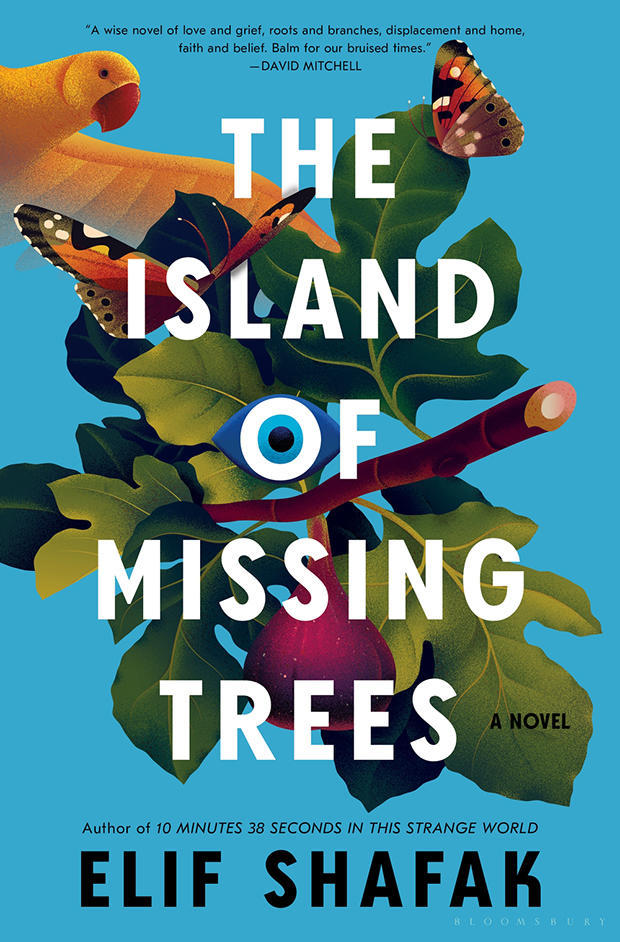Book excerpt: "The Island of Missing Trees" by Elif Shafak
Turkish-British writer-activist Elif Shafak presents a hauntingly beautiful novel, "The Island of Missing Trees" (Bloomsbury), involving a pair of young lovers – one Turkish, one Greek – who are separated by a military invasion.
Read an excerpt below.

Ada clenched her eyes shut, feeling the burn of the comment, a raw scorch mark on her flesh. But nothing they did or said could be worse than her hatred for herself just then. What was wrong with her? Why could she not answer a simple question like everyone else?
As a child she had loved turning in circles on the Turkish carpet to make herself dizzy and drop to the floor, from where she would watch the world spin round and round. She could still remember the hand-woven patterns of the carpet dissolving in a thousand sparks, the colours blending into each other, scarlet into green, saffron into white. But what she experienced right now was a different kind of dizziness. She had the sense of entering a trap, a door locking behind her, the click of a latch falling into place. She felt paralysed.
So many times in the past she had suspected that she carried within a sadness that was not quite her own. In science class they had learned that everyone inherited one chromosome from their mother and one from their father – long threads of DNA with thousands of genes that built billions of neurons and trillions of connections between them. All that genetic information passed from parents to offspring – survival, growth, reproduction, the colour of your hair, the shape of your nose, whether you had freckles or sneezed in sunlight – everything was in there. But none of that answered the one question burning in her mind: was it also possible to inherit something as intangible and immeasurable as sorrow?
'You may sit down,' repeated Mrs Walcott.
Still she did not move.
'Ada…did you not hear what I said?'
Remaining upright, she tried to choke back the fear that filled her throat, clogged her nostrils. It reminded her of the taste of the sea under a harsh, beating sun. She touched it with the tip of her tongue. It wasn't the salty sea brine after all, it was warm blood. She had been biting the inside of her cheek.
Her eyes slid towards the window, beyond which the storm was approaching. She noticed in the slate- grey sky, amidst banks of clouds, a sliver of crimson bleeding into the horizon, like an old wound that had never quite healed.
'Please sit down,' came the teacher's voice.
And, once again, she did not comply.
Later, much later, when the worst had already happened and she was alone in her bed at night, unable to fall asleep, listening to her father, also sleepless, pacing the house, Ada Kazantzakis would revisit this moment, this fissure in time, when she could have done as she was told and returned to her seat, remaining more or less invisible to everyone in the classroom, unnoticed but also undisturbed; she could have kept things the way they had been, if only she could have stopped herself from doing what she did next.
Excerpt from "The Island of Missing Trees." Copyright Elif Shafak, 2021. Reprinted by permission of Bloomsbury.
For more info:
- "The Island of Missing Trees" by Elif Shafak (Bloomsbury), in Hardcover, eBook and Audio formats, available via Amazon and Indiebound
- elifsafak.com.tr
Disclaimer: The copyright of this article belongs to the original author. Reposting this article is solely for the purpose of information dissemination and does not constitute any investment advice. If there is any infringement, please contact us immediately. We will make corrections or deletions as necessary. Thank you.







